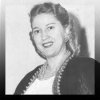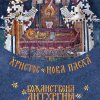Željka Cvjetan Gortinski, an actress, is a member of the Society of Dramatic Artists of Serbia and the Afta - SAG Union.
She earned a Bachelor of Arts in acting, in 1984, at the University of Arts, Belgrade.
During her second year at the University, she started her professional career as an actress in many stage, film, radio and TV productions and became a permanent member of a repertory theater company, “Belgrade Drama Theater.”. Zeljka was fortunate to work with some of the greatest directors in the former Yugoslavia: Dusan Jovanovic, Slobodan Unkovski, Dejan Mijac, and Egon Savin. She starred in successful TV mini series: “The Forgotten Ones”, “House of Gloom” and “The Portrait of Ilija Pevac” as well as in feature films, “Oktoberfest”, “Odyssey Over Igman” and “The Little Carrot You Do Not Grow Nicely.” In 1991, Ms Gortinski and her family moved to California where she has continued her acting career and education, having earned a Master’s Degree in Theater from the California State University, Los Angeles in 1997.





